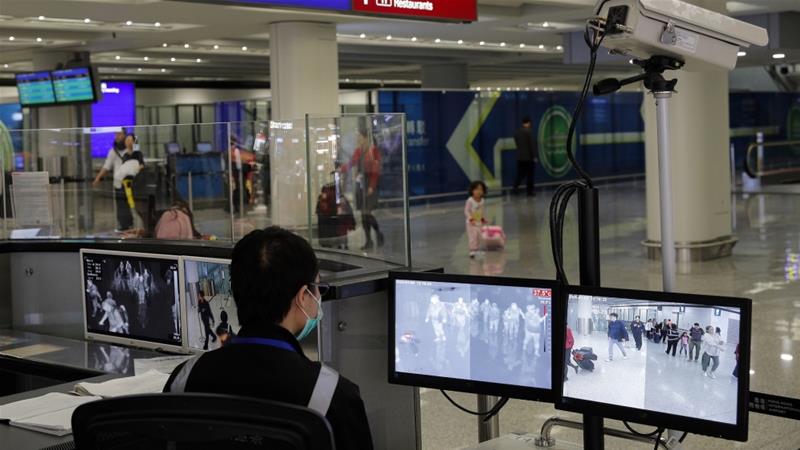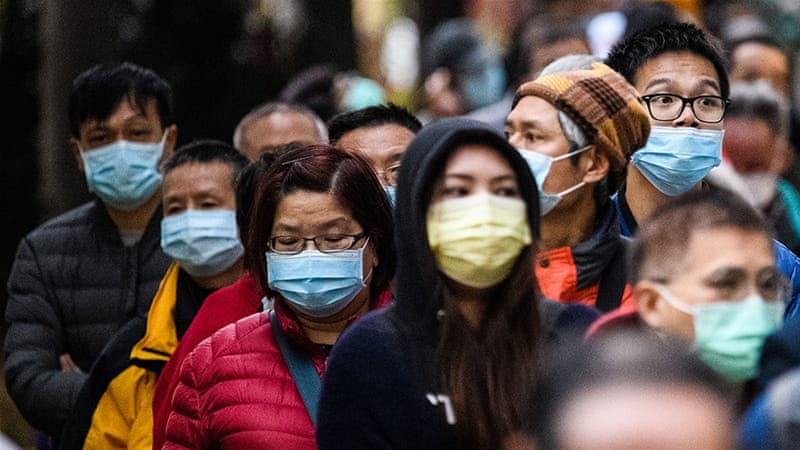
Apr 2, 2020 | News
Today, the ICJ joined more than 100 other organizations to urge States to ensure that any use of digital technologies to track and monitor individuals and populations as part of measures to tackle the COVID-19 pandemic is fully human rights compliant.
The organizations warned that efforts to contain the virus must not be used as a cover to impose greatly expanded systems of invasive digital surveillance that are likely to be abused, unless adequate safeguards are put in place to protect freedom of expression, the right to privacy and other rights.
Technology can and should play an important role in the midst of the current crisis to protect the rights to health, life and security.
Deploying non-consensual State digital surveillance powers however can risk violations of the rights to privacy, freedom of expression, information and association. If implemented in an arbitrary or discriminatory way, and without adequate oversight, these measures risk damaging public trust in state authorities and undermining the effectiveness of any public health response. Non-consensual digital surveillance measures may also disproportionately exacerbate discrimination against already marginalized communities.
The organizations called on all governments to ensure that increased digital surveillance measures meet the following conditions:
- Surveillance measures adopted to address the pandemic must be lawful, necessary and proportionate. Governments must be transparent about the measures they are taking so that they can be scrutinized and, if appropriate, later modified, retracted, or overturned.
- Expansion of monitoring or surveillance measures must be time-bound, and only continue for as long as necessary to address the current pandemic.
- States must ensure that increased collection, retention, and aggregation of personal data, including health data, is only used for the purposes of responding to the COVID-19 pandemic. Data collected, retained, and aggregated to respond to the pandemic must be limited in scope, time-bound in relation to the pandemic and must not be used for commercial or any other purposes.
- Governments must take every effort to protect people’s data, including ensuring sufficient security of any personal data collected and of any devices, applications, networks, or services involved in collection, transmission, processing, and storage. Any claims that data is anonymous must be based on evidence and supported with sufficient information regarding how it has been anonymized.
- Any use of digital surveillance technologies in responding to COVID-19, including big data and artificial intelligence systems, must address the risk that these tools will facilitate discrimination and other rights abuses against racial minorities, people living in poverty, and other marginalized populations, whose needs and lived realities may be obscured or misrepresented in large datasets.
- If governments enter into data sharing agreements with other public or private sector entities, they must be based on law, and the existence of these agreements and information necessary to assess their impact on privacy and human rights must be publicly disclosed – in writing, with sunset clauses, public oversight and other safeguards by default. Businesses involved in efforts by governments to tackle COVID-19 must undertake due diligence to ensure they respect human rights, and ensure any intervention is firewalled from other business and commercial interests.
- Any response must incorporate accountability protections and safeguards against abuse. Increased surveillance efforts related to COVID-19 should not fall under the domain of security or intelligence agencies and must be subject to effective oversight by appropriate independent bodies. Individuals must be given the opportunity to know about and challenge any COVID-19 related measures to collect, aggregate, and retain, and use data.
- COVID-19 related responses that include data collection efforts should include means for free, active, and meaningful participation of relevant stakeholders, in particular experts in the public health sector and marginalized population groups.
Link to joint statement here.
See also
ICJ, ‘Southeast Asia: States must respect and protect rights in combating misinformation online relating to COVID-19’, 1 April 2020

Apr 1, 2020 | News
The ICJ today called on States in Southeast Asia to respect and protect human rights online and offline, in accordance with their obligations under international law, as they take steps to stop the spread of COVID-19.
It urged States to ensure that avoiding adverse impacts on the exercise of the rights to freedom of expression, opinion, information and privacy are front and center when implementing measures to counter misinformation about the virus.
“This is a health emergency, unprecedented in modern times, that calls for urgent, targeted and effective responses by the State including measures to curtail false or misleading information about the spread of COVID-19,” said Frederick Rawski, ICJ’s Director for Asia and the Pacific.
“However, such measures must be implemented in accordance with rule of law principles, and their enforcement should protect the rights to health and life just as much as the rights to free expression, opinion, information and privacy.”
Governments in Southeast Asia have introduced and begun to enforce severe measures to control information online about the virus. This raises concerns about the potential for State over-reach in light of how Southeast Asian governments have historically enforced laws to curtail rights and censor content online in violation of international law. This trend was mapped out in its 2019 regional report.
The ICJ’s concerns has already been substantiated by recent actions taken by law enforcement authorities in some countries in the region. Arrests and detentions for online expression, in some cases without a warrant, have been reported in the Philippines, Malaysia, Indonesia, Cambodia, Vietnam and Thailand. Some of the laws in these countries which the ICJ had identified in its report as non-compliant with international human rights standards have been mis-used to arrest, detain and charge individuals accused of spreading false information online on the COVID-19 virus.
Legal provisions pursuant to which these arrests have been made carry significant criminal penalties including imprisonment terms and heavy fines – in some cases for merely expressing criticism of government measures on social media, such as complaints about inadequate screening measures or a lack of government preparedness.
“We urge governments not to repeat the mistakes of the past. The mere perception that the law is being used to suppress speech will only undermine the credibility of State institutions at a time when maintaining public trust is crucial,” said Rawski.
“Misinformation can be curtailed using less intrusive means than arrests, detentions and disproportionately onerous fines or imprisonment terms.”
To download the full statement with background information, click here.
Contact
Frederick Rawski, ICJ Asia Pacific Regional Director, e: frederick.rawski(a)icj.org
See also
ICJ, ‘Southeast Asia: ICJ launches report on increasing restrictions on online speech’, 11 December 2019

Mar 30, 2020 | News
The ICJ is calling on the Turkish Parliament to extend the planned provision of alternatives to detention in response to the COVID-19 crisis to all those imprisoned for non-violent crimes who do not pose a current threat to members of the public, regardless of the nature of the offences for which they have been charged.
In particular, alternatives to detention should apply to all those detainees who are particularly at risk at losing their life or suffering severe health effects from COVID-19.
Measures to protect the right to life, the right to health and other human rights must apply equally and without discrimination in line with Turkey’s international legal obligations.
The government have announced the tabling of a draft law to reduce the prison population that has been under discussion in recent months. The process has been accelerated with the purported aim of addressing the serious health risk that an outbreak of COVID-19 contagion would pose to the prison population. However, the draft law has not been adapted to address the health crisis and contains several shortcomings.
The new measures would grant alternatives to detention, including house arrest or early parole to an estimated one-third of the prison population.
This welcome move is however limited by the exclusion of those convicted or under trial for terrorism offences or offences against the State.
“In Turkey, terrorism offences and offences against the State have long been abused to arrest, try and jail human rights defenders, lawyers, judges and political opponents,” said Massimo Frigo, Senior Legal Adviser for the ICJ Europe and Central Asia Programme. “The rights to life and health of these groups are now at particular risk.”
The ICJ considers that it is also essential that all detainees who are members of a group whose life or health may be at risk because of COVID-19 have either access to alternatives to detention, if they do not pose a current threat to public safety, or, otherwise, to detention conditions that may preserve them as far as possible from such risk.
“The State has a non-derogable obligation to protect the right to life of all its prison population, without discrimination of any sort,” Massimo Frigo added.







